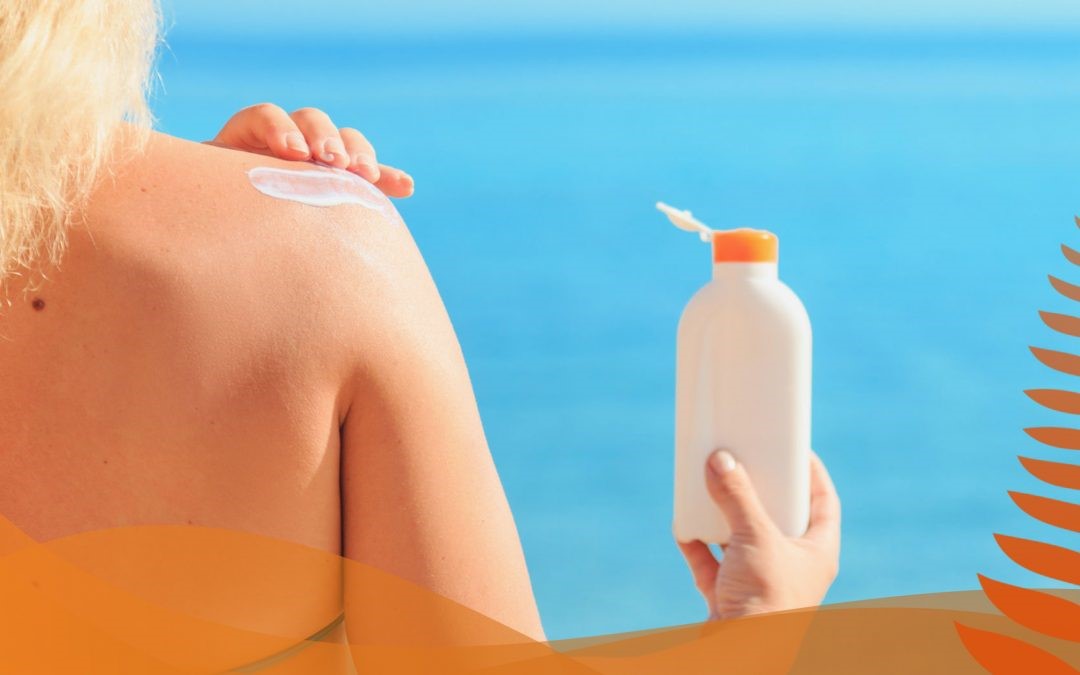Sunscreen is one of the most essential steps in any skincare routine. It protects the skin from harmful UV rays, prevents premature aging, and reduces the risk of skin cancer. However, with so many sunscreens available, choosing the right one can be overwhelming. The biggest debate in the sunscreen world is chemical vs. mineral sunscreens—which one is better for your skin?
Brands like Beauty of Joseon and Sensoo Skincare offer high-quality sunscreens that cater to different skin types and concerns. In this article, we will explore the differences between chemical and mineral sunscreens, their pros and cons, and how to choose the best option for your skin.
Table of Contents
What Are Chemical and Mineral Sunscreens?
Sunscreens work by creating a barrier between your skin and the sun’s ultraviolet (UV) rays. However, the way they protect your skin varies based on whether they are chemical or mineral-based.
Chemical Sunscreens
Chemical sunscreens absorb UV radiation, convert it into heat, and release it from the skin. They typically contain ingredients like oxybenzone, avobenzone, octinoxate, and homosalate.
Mineral Sunscreens
Mineral sunscreens, also known as physical sunscreens, use zinc oxide or titanium dioxide to form a barrier on the skin that reflects and scatters UV rays before they penetrate the skin.
Beauty of Joseon Relief Sun: Rice + Probiotics SPF 50+ PA++++ is a chemical sunscreen that provides lightweight protection with added skin benefits.
Sensoo Skincare’s Mineral UV Defense SPF 50 is a mineral sunscreen that is gentle on sensitive skin and offers broad-spectrum protection.
How Do Chemical and Mineral Sunscreens Work?
The key difference between chemical and mineral sunscreens is how they interact with UV rays.
How Chemical Sunscreens Work
- Absorb UV rays into the skin.
- Convert the rays into heat and release them.
- Protect against both UVA and UVB rays depending on the formulation.
- Often have a lighter texture and blend easily into the skin.
How Mineral Sunscreens Work
- Sit on top of the skin and physically block UV rays.
- Reflect and scatter UV radiation away from the skin.
- Work immediately after application, unlike chemical sunscreens that need 15-20 minutes to activate.
If you are looking for instant sun protection, mineral sunscreens work as soon as they are applied, while chemical sunscreens require time to absorb and become effective.
Pros and Cons of Chemical Sunscreens
Chemical sunscreens are widely used due to their lightweight feel and invisible finish, making them ideal for everyday wear and under makeup. However, they also have some drawbacks.
Pros of Chemical Sunscreens
- Lightweight and easy to apply
- Absorbs quickly without leaving a white cast
- Water-resistant formulas available, making them great for outdoor activities
- Works well under makeup because of its smooth finish
Cons of Chemical Sunscreens
- Can cause irritation for sensitive or acne-prone skin
- May clog pores, leading to breakouts
- Some chemical ingredients are linked to skin irritation or hormone disruption
- Requires reapplication more often compared to mineral sunscreens
Beauty of Joseon’s chemical sunscreen is a great option for normal to oily skin types because of its lightweight and non-greasy texture.
Pros and Cons of Mineral Sunscreens
Mineral sunscreens are known for their gentle, protective properties, making them ideal for sensitive skin. However, they do have some downsides.
Pros of Mineral Sunscreens
- Better for sensitive skin since they contain fewer irritating chemicals
- Provides broad-spectrum protection with zinc oxide and titanium dioxide
- Does not clog pores, making it suitable for acne-prone skin
- Safer for the environment, as some chemical sunscreens are harmful to coral reefs
Cons of Mineral Sunscreens
- Can leave a white cast, especially on darker skin tones
- Thicker and harder to blend compared to chemical sunscreens
- May need frequent reapplication if sweating or in water
Sensoo Skincare mineral sunscreen is formulated with micronized zinc oxide, making it easier to blend without leaving a heavy white cast.
Which Sunscreen is Best for Your Skin Type?
Choosing between chemical and mineral sunscreen depends on your skin type, lifestyle, and personal preferences.
For Oily or Acne-Prone Skin
- Choose oil-free and non-comedogenic chemical sunscreens.
- Matte-finish formulas help control shine.
- Lightweight, gel-based options work well under makeup.
Beauty of Joseon’s Rice + Probiotics SPF 50 is a lightweight chemical sunscreen that absorbs excess oil without feeling greasy.
For Sensitive or Dry Skin
- Mineral sunscreens are the best choice since they are gentle and soothing.
- Look for hydrating ingredients like hyaluronic acid, aloe vera, or ceramides.
Sensoo Skincare’s Mineral UV Defense SPF 50 is infused with soothing ingredients to keep sensitive skin hydrated and calm.
For Darker Skin Tones
- Chemical sunscreens are better as they do not leave a white cast.
- Some tinted mineral sunscreens can help blend better with deeper skin tones.
Beauty of Joseon’s chemical sunscreen has a transparent formula, making it a great option for darker complexions.
Sunscreen and Makeup: Which One Works Best?
If you wear makeup daily, choosing the right sunscreen is important to ensure smooth application and long-lasting wear.
Best Sunscreen for Makeup Wearers
- Chemical sunscreens absorb quickly and create a smooth base for makeup.
- Mineral sunscreens can pill under makeup if not properly blended.
- Some sunscreens come in tinted formulations that work as a primer.
Sensoo Skincare’s tinted mineral sunscreen provides a natural glow while protecting against UV rays.
The Importance of Reapplying Sunscreen
Regardless of whether you choose chemical or mineral sunscreen, reapplication is key to maintaining protection throughout the day.
How to Reapply Sunscreen
- Every two hours if outdoors for extended periods.
- After swimming or sweating, even if using a water-resistant formula.
- Use a sunscreen mist or powder to refresh sunscreen without disturbing makeup.
Beauty of Joseon’s UV Mist SPF 50 makes reapplication easy, especially for those who wear makeup.
Conclusion
Both chemical and mineral sunscreens provide effective sun protection, but the best choice depends on your skin type, lifestyle, and preferences.
- Choose chemical sunscreen if you prefer a lightweight, invisible finish that blends well with makeup.
- Choose mineral sunscreen if you have sensitive skin or prefer a natural, reef-safe formula.
Brands like Beauty of Joseon and Sensoo Skincare offer high-quality sunscreens that cater to different skin needs, ensuring that you get the best protection without compromising comfort.
Regardless of which type you choose, the most important thing is to wear sunscreen every day and reapply regularly to keep your skin healthy, youthful, and protected from the sun’s harmful rays.



